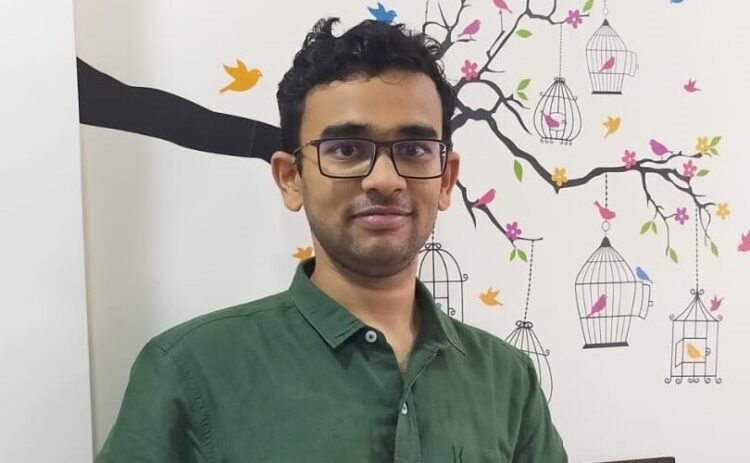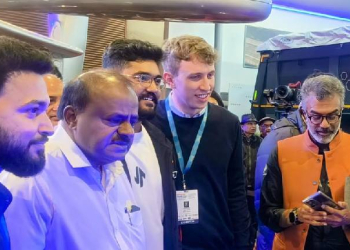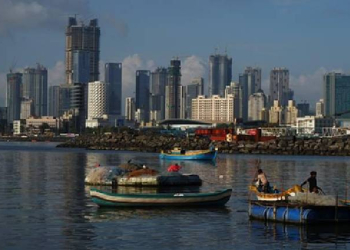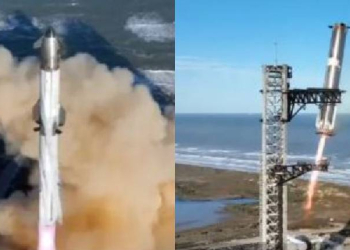New Delhi: As the Indian agriculture sector adopts new-age technologies and telematics to improve crop yield, agritech startup Carnot Technologies is empowering farmers to take data driven decisions and earn up to 30 per cent more.
Operating in several states, Carnot, which is backed by Mahindra Group, gets farm area close to 1.5 million acres every season on its platform, which is only growing.
According to Pushkar Limaye, Co-Founder and CTO at Carnot, they are on a mission to help improve farmers’ productivity using IP-backed technologies.
Carnot provides products and services related to internet-connected devices, for monitoring performance of vehicles and equipment.
Limaye told IANS that 80 per cent of farmers continue their Internet of Things (IoT) subscription beyond the initial six-months mark.
Here are excerpts from an interview:
Q: How was the idea to set up Carnot conceived? What is your mission and USP?
A: The seeds of Carnot were seeded in Silverstone race track in the UK, where three of us — the founders — were leading the IIT Bombay Racing Team for a competition named Formula Student. Over there, I saw a huge gap in the quality of engineering done by us, the Indian teams and the best of the cars from western world.
Hence, Carnot was started with an ambition of building world class products out of India. We actually started up in the car telematics space.
Although along the journey we had a strategic investment round from Mahindra, which started our pivot into Agritech. Since then, there has been no looking back and we are on a mission to help improve farmers’ productivity using IP-backed technologies. Our USP right now is also our flagship product, the ‘Krishe Smartkit’.
‘Krishe Smartkit’ is a telematics system that goes on any tractor/agri-machinery in the world and helps them improve their productivity in the tractor rental business. This mainly happens via 3 features — namely live tracking, farm and haulage work identification and fuel monitoring.
Q: How are you leveraging big data and analytics to help farmers make better decisions?
A: We are glad to mention here that we have 7 patent-backed IPs in our cloud.
The most important IP is the one that separates farm work from a road journey, and a custom compression algorithm that powers up our database.
Why is this important? Well, imagine running a transparent cab business without google maps. Taxi without a meter in simple words — strange, right? Well, that’s what over 4 million rental entrepreneurs (REs) are doing every single day in India.
We have an IoT platform that currently gets almost 220 million pings every single day, and based on the raw noisy GPS time series data, we have a 3 step AI model that cleans up the data, and further identifies farm work and road travel as well as the acres and hours associated with each of the farms. This helps the RE keep a track of exact billing.
Similarly, we have a data science model that monitors fuel voltage coming from extremely noisy sensors on a tractor, and based on that data we derive insights around fuel level, fuel theft/refuel events etc. In our estimate, an average RE saves close to Rs 15,000-Rs 20,000 in one season of tractor operation due to insights from the Krishe Smartkit system.
Today, we get farm area close to 1.5 million acres every season on our platform, and it is only growing as we scale. This helps us further tune and improve our models. The solution is a great product-market-fit amongst the REs, with 9.4+ NPS score. Our DAU is close to 90 per cent, with 80 per cent of farmers continuing the IoT subscription beyond the initial six-month mark. Indian farmers love IoT — that’s some power of big data and analytics we must say!
Q: What are the challenges you face when it comes to farmers and other stakeholders in the Indian agri landscape embracing new technologies? Tell us about your growth over the last few years and how many farmers currently use your app?
A: In India, across every few 100 kms, the dialects, slangs and perhaps even tech adaption changes. Hence, in my personal opinion tech delivery is going to be the biggest problem with Indian farmers. Fundamentally, this conflict is because in this generation — the ones making technology are grown up in the cities, and have never really seen the ground reality.
In order to overcome tech delivery challenges, I think agritech needs to scale in a Phygital manner, and the physical part of the ecosystem will play a major role. We are focused towards solving for not only REs and farmers but also towards the distribution channels in the ecosystem that can help us grow. This will be a big challenge for us as well as everyone in the agritech space to get the distribution right.
We started with a humble pilot of 50 units, sold 3K in the first year, scaled to 9K the next year. Currently, we have close to 22,000 REs on the platform, and we intend to take it towards 100,000 by the end of March 2024.
We are working very closely with the Mahindra Krishe team to take our mission to a different scale, using Mahindra’s strong brand and distribution. Currently, almost 90 per cent of our users are opening the app daily and spend a staggering 50 minutes on the app. This is probably the highest engagement in the agritech domain that we have heard of for the Indian farmers.
Q: In terms of success metrics — income levels, conserving water, reducing carbon footprint etc.– how has the farmer and the agriculture landscape benefited due to your services?
A: We think of a tractor as a machine that pollutes the environment. But, if you calculate — a decision to use a tractor against an animal is effectively an 8x boost in productivity per acre in terms of time. There is a body of research which points out that using a tractor over an animal almost saves 5KG of carbon emission per acre.
Additionally, implements like laser leveller helps tremendously for a farmer to save on water consumption. We have helped REs, who are aspirational farmers, grow their business and there are just far too many success stories. We have many customers who have grown from owning the first tractor on EMI to growing a fleet of tractors and harvesters running as a business.
ThisAallows the farmer to be less dependent on farming income, and hence trial out innovative farming practices such as scientific advisory by Krishe app, or the Takneek plot system run by Krishe centres across 150 Krishe centres in India.
Q: What has cloud technology and AWS allowed you to do better?
A: Cloud technology, and particularly AWS, has really been a big enabler for us to deploy our IP seamlessly at the scale at which we are operating. Our entire IoT infra is built on AWS services, and it has taken the hassle out of the way and given us more than 99.9999 per cent uptime.
The flexibility around deployment also helps ease DevOps since we firmly believe in doing things from the first principle. Our innovative database, which runs on our patent pending compression algorithm, also runs using Amazon S3 and Amazon ElastiCache and has helped us do wonders in terms of customer experiences.
(IANS)





















